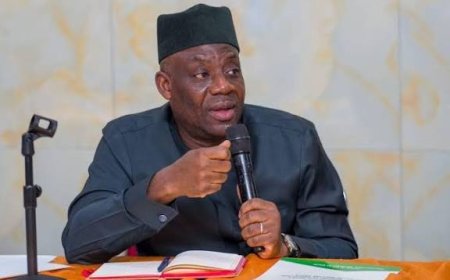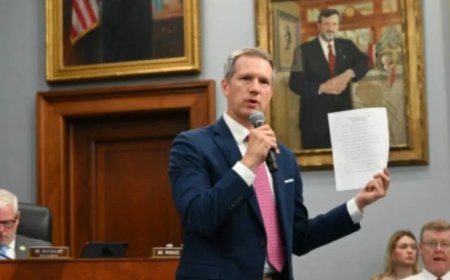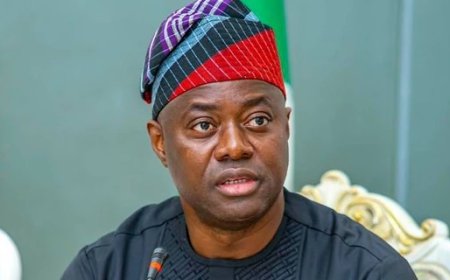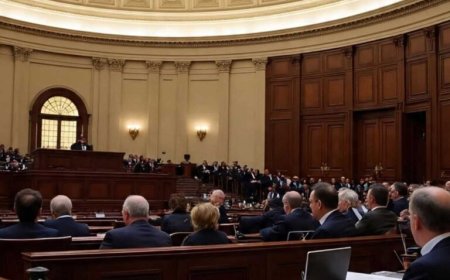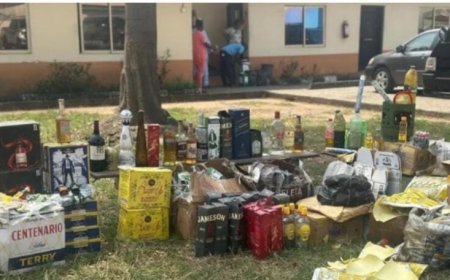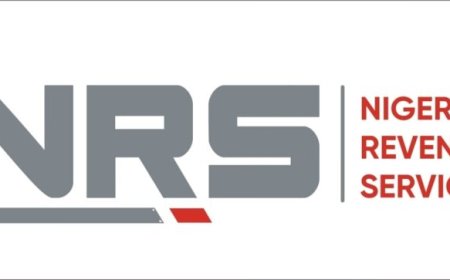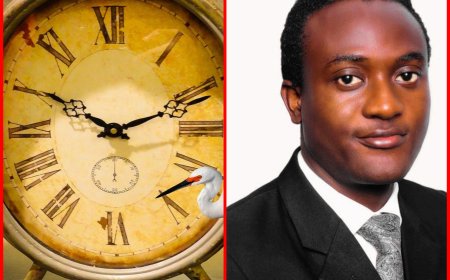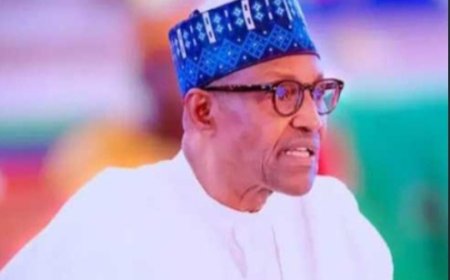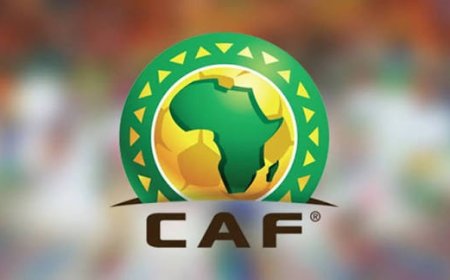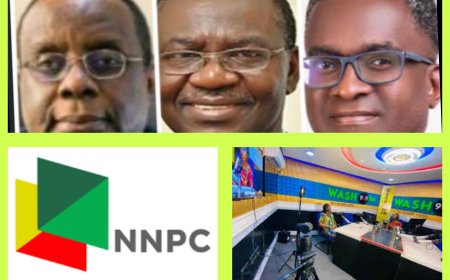Oil Industry Experts Say NNPCL Business is Flawed, Demand Free Hand for Ojulari
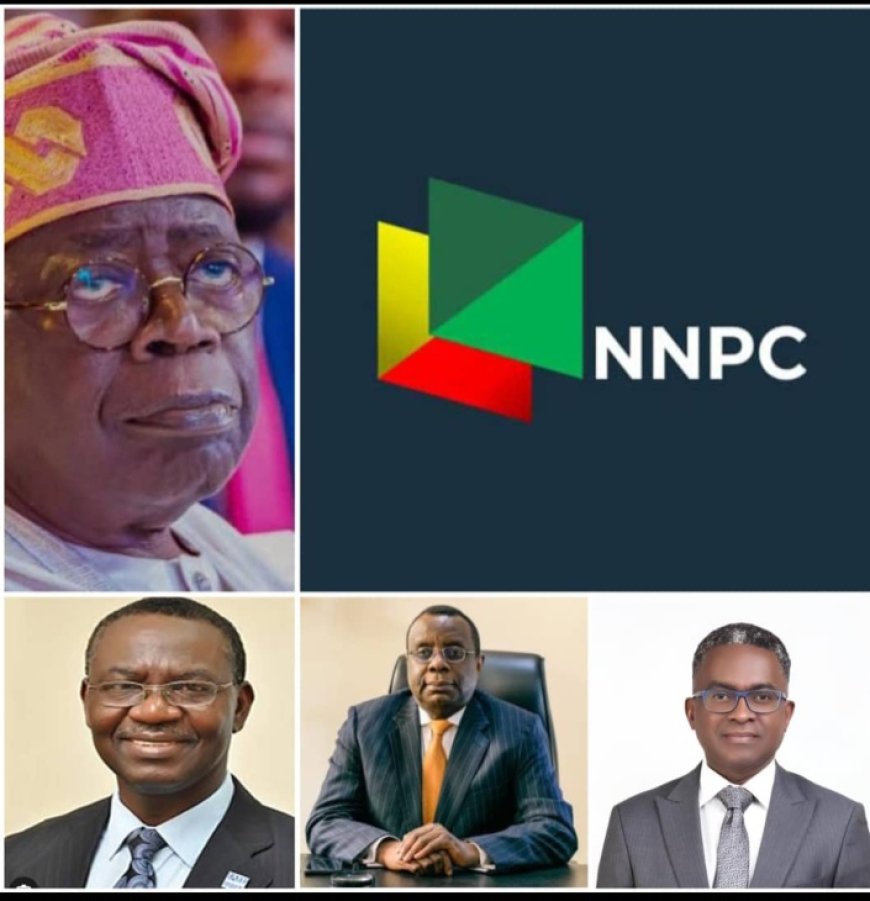
By: Olufemi Orunsola
Three key players in the Oil and Gas Industry, Prof Wùnmi Iledare, Dr Timothy Okon and Engr. Emeka Ene, have unamnimously commended President Bola Tinubu for his appointment of a fully professional and competent management team for the turnaround of Nigerian National Petroleum Corporation Limited (NNPCL).
OPEN TELEVISION NAIJA (OTN) News reports that the oil industry experts made known their viewpoints that President Tinubu has demonstrated great astuteness in appointing the team headed by the Group Chief Executive Officer, Mr Bayo Ojulari but they formed a consensus that the President should give the new team free hand to clean the rot in NNPCL.
The trio spoke spoke while featuring as Discussants on the popular monthly interview discourse, Boiling Point Arena, hosted by a media professional and public relations strategist, Dr Ayo Arowojolu.
The current affairs programme with the topic of discourse: "Cleaning the Augean Stable: Can NNPC's New Team Fix Nigeria's Oil and Gas Sector, Making it Work for Nigerians?", was transmitted via Zoom and broadcast live on six radio stations across Lagos, Ogun and Delta States - WASH FM, Sweet FM, Roots FM, Eri-Nbe FM, Women Radio FM and Kruzz FM.
The programme was chaired by a frontline traditional ruler, Olowu of Owu Kingdom, Oba Prof Saka Matemilola who himself was a one-time President of the Society of Petroleum Engineers, Nigeria Council.
The Discussants; Prof. Wunmi Iledare included an Emeritus Professor in petroleum economics and policy research at the Centre for Energy Studies, Louisiana, United States of America while Dr Timothy Okon was at some point a former Acting Group Executive Director, Exploration and Production, NNPC.
For his part, the third Discussant, Engr. Emeka Ene is CEO, Oida Energy Group and Chairman, Board of Trustees of the Society of Petroleum Engineers, Nigeria Council.
To the trio, their submission is that the vision of NNPC began to derail and thus became a laughing stock since 1995 when successive regimes started hijacking the governance structure of the agency and completely depleting oil revenues generated without ploughing back funds for regular and timely maintenance of oil infrastructures.
Prof Iledare said: "Nigerians must commend President Bola Tinubu for getting it right by incorporating a Board and Management Team for NNPCL that have a good understanding of oil and gas industry.
"But one will suggest that Tinubu must allow the company to function apolitically and also give a freehand to Mr Bayo Ojulari to operate and clear the rot in the system in order to turnaround the fortunes of the company.
"Based on the Petroleum Industry Act(PIA), NNPCL does not have a political mandate but a mandate to be profitable and commercial in its operations in order to fully grapple with the challenges of operational inefficiency, opaqueness, bloated cost of doing business and so on.
"It is a fallacy that the oil discovery in Nigeria is a curse. Rather, it is the way successive governments have managed oil revenues that has landed Nigeria where we are".
For Dr Okon, the plank of his argument is premised on the long-held monopoly of the NNPCL which he said operates a dependency business approach and a near reckless depletion of excess oil revenues by past regimes, with attendant breakdown of local petroleum refineries.
In his words, "What used to be in operation was that the government set up the prices for petroleum products and those prices were often set to meet certain social objectives or social goals. This was monopoly which end up having an issue in which choices are made that that are suboptimal, of which people now take advantage of the monopoly and policies.
"So if you look at the PIA, the construct is to completely remove the, monopoly supplies in order to have a market based mechanism by which we we are now hoping that this would make a change, that NNPC will not be a sole supplier and a sole distributor of any petroleum product.
"With the PIA, prices of petroleum products are subject to the vagaries of the market. Previously, that was not the case. The Petroleum Act of 1969 under, section six basically says the Minister of Petroleum shall determine prices. So we are moving away from that source of contention to a situation where there is transparency which will cut to size cases of cases of corruption and round tripping of petroleum products.
"What has happened to Nigeria is what is called a dependency theory. That theory basically is what colonial masters brought into play. So we were exporting primary goods, whether it was cocoa, groundnut or crude oil, then we were instead bringing in the finished product. You export raw materials, and you bring finished products from the industrialized economies.
"That still remains essentially the model that we are operating. Because when we don't have functional refineries or processing capability, that becomes very, very critical. So it was incumbent on us to have an industrial policy, economic policy that was focused on processing hydrocarbons, for example, and, basically, moving away from the dependency theory of development to a better one that is probably more mercantilist and very focused on trading and also processing whatever you make.
In his contribution, Engr. Emeka Ene hammered more on what he called a "flawed business model" which government foisted on NNPC over the years, concluding that such an economic model could not have been sustainable.
For Engr. Ene: "The NNPC has not suffered, on account of corruption or suffered on account of poor quality people. But the fact that they were operating a flawed business model that was not sustainable. And that will happen to any business. You know, if you're creating a business model that's not sustainable, at some point, it's going to ground to grind to a halt. And that's basically, the the challenge.
"Of course, it is very obvious we have to press the reset button. And and I think this is what the recent developments have pointed to is the fact that, the same organization, NNPCL, has delivered results in the past. The same organization can continue to deliver that in the future, if the right factors are put in place.
"It is worse that because the business model of the refineries was to produce, on behalf of an NNPC, irrespective of what the market was saying. So you are given a certain allocation of crude oil and you produced it, and you delivered it. And then it is sold at whatever price. Obviously, that was not and has never been sustainable.
"And when you extrapolate that all the way to when the refineries stopped working, it was obvious why it was not working. And there's a colossal impact on the economy. the operators of these refineries performed miracles to keep the refineries open. They literally were innovating in many ways because they didn't have spares, and they they they tried to to collaborate and make sure that the financials sustained the best they could even though they were not being properly funded.
"The revenue generated ended up in a Federation Account, and it had to rely on budgets to get the money out to fund the industry. There was a disconnect, an obvious disconnect".
What's Your Reaction?















